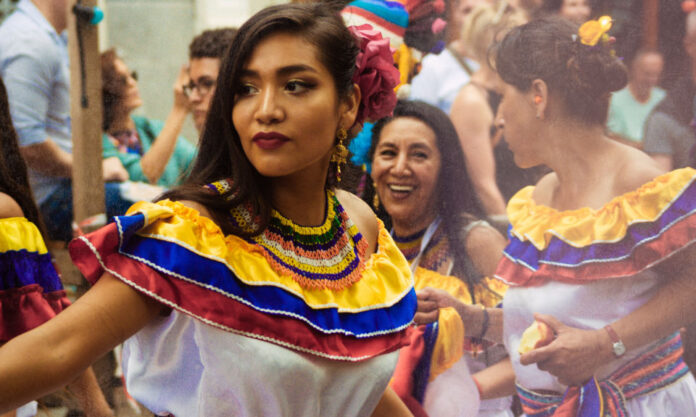Common folk-wisdom runs that happiness is found in community. That we were happier in the past, in smaller, more tightly-knit communities; villages, towns, family units. That a big cause of the modern malaise is the fracturing of communities into ever more isolated units; single people living alone.
Governments have been formed, and have failed, upon the idea of the country as a community.
But does community make us happy? The best questions rarely have answers, but lead to yet more questions. In Yuval Noah Harari’s seminal work, “Sapiens”, he argues, “Happiness does not really depend on objective conditions of either wealth, health or even community. Rather, it depends on the correlation between objective conditions and subjective expectations”. Big ideas. Let’s start with a consideration a little closer to home; our communities abroad.
It takes some time in a new place to find a community, and communities of foreigners are notoriously transient. Having recently moved away from Nanjing, I find myself reflecting on the groups I was part of there and the time it took to form those bonds. Aside from the obligatory community of colleagues, shared interests are usually the building blocks of becoming part of something.
And then, of course, there are those with whom you find yourself randomly flung together, often after meals, KTV and baijiu, or all three.
Living abroad, non natives of a country often have that instant bond of reflecting on the unusual situations into which we have put ourselves. Our connections get accelerated, as the ice-breaking is done for us; we can gravitate to each other in situations a little out of our comfort zones.
I will always remember being told by an Indian friend of mine in the UK her process on entering a room full of unknown people, say at a party. She will scan the room, make eye contact with, and give a nod of recognition to, any other person of Indian heritage in that room, despite them being a total stranger. It appears community, or at least solidarity, can be formed immediately, springing out of shared bonds of heritage.
While not sharing this experience, I was fortunate to find a welcoming community of dancers in Nanjing; the fantastic Dream Dance group run by Mia (check them out if you’re into salsa and bachata!), who teaches in both Mandarin and English, and caters to veterans and newcomers alike. Nothing quite forges a community like a hobby, especially one that throws you face-to-face with strangers!
Wherever and however you find your people, Harari states that you will only be as happy as you expect yourself to be, on top of your material living conditions.
He would argue that the reason we look back on our recent agricultural past, and its idyllic-seeming rural life, as a golden age for community and happiness, is because we did not expect more out of it. We did not assume that life owed us anything. The modern rise in individualism, hand-in-hand with capitalism, has raised human expectations of what we could and should have.
So if we expect ourselves to have as much as our peers, we will be proportionately less happy than when we don’t. Our objective living conditions could be very good, certainly far better than those of a farm labourer, 200 years ago, toiling in the rice paddies of Asia or the cold, wet farms of Northern Europe. But because we have seen more, we want more. Contrastingly, the labourers and peasants of our recent past never saw themselves as being able to have more.
Religion and culture had not beensupplanted by modern individualism.
The people were doing better than their ancestors. They had food to eat and a roof over their heads. They were “happier”. The fact they lived in small, tight-knit communities is by-the-by.
Harari has more to say on communities; “Any large-scale human cooperation; whether a modern state, a medieval church, an ancient city or an archaic tribe; is rooted in common myths that exist only in people’s collective imagination”…
Huh? Cities and churches don’t exist outside my imagination? Can I have some of what he’s got?
At the risk of butchering the elegant prose and sharp concept construction of Sapiens, I shall briefly summarise his ideas; human beings have created systems of cooperation, such as religion, money and wider communities such as countries, and from our abilities to use language and delayed gratification to transcend our biological limits.
Whereas many members of the animal kingdom undoubtedly exist in small communities or even large herds or packs, it is only humans who seem able to organise cooperation on a truly massive scale, with a goal in mind beyond seeking shelter, protection in numbers, food or a mate.
So if these human constructs, these communities, served us so well, allowed us to spread and flourish and conquer the world as a species, why, too, do we have such conflict? And what is to be done if we do, in fact, have large-scale fragmentation of previously close communities, and a rise in expectations for our lives not met by a rise in our material conditions?
Somewhere between the folk wisdom and the anthropology of Harari is, at least, agreement that happiness cannot come from these things.
As I said, I don’t have the answers. But somewhere amongst the KTV, the bachata, and the baijiu, there is at least community to be found. And if we keep our expectations in check and realise that, maybe, this is enough for the time being, we should find at least some fleeting joy.









